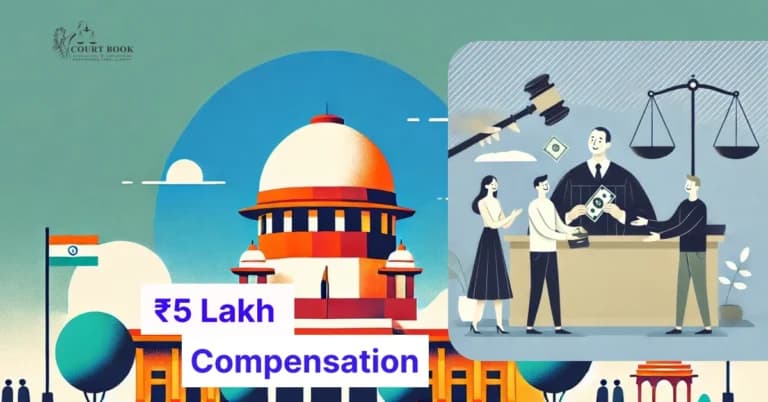On January 29, 2025, the Supreme Court directed the Haryana government to pay ₹5 lakh each to three individuals wrongfully convicted in a 1998 murder case. The Court rebuked the Punjab and Haryana High Court for illegally overturning their acquittal, emphasizing that such judicial overreach undermines the right to a fair trial.
Case Background
The dispute originated from a violent clash during Holi festivities in 1998, resulting in the death of Om Parkash. While the trial court convicted one accused, it acquitted Mahabir and three others in 2005 due to insufficient evidence. The State did not challenge this acquittal. However, the deceased’s father filed a revision petition in 2006, which the High Court allowed in 2024, convicting the appellants and sentencing them to life imprisonment. The Supreme Court intervened, highlighting glaring legal errors in the High Court’s approach.
The Supreme Court identified multiple flaws in the High Court’s decision:
- Misuse of Revisional Powers:
The High Court reversed the acquittal under Section 401 CrPC, despite a statutory bar on converting acquittals into convictions. Citing Bindeshwari Prasad Singh v. State of Bihar (2002), the Court emphasized that revisional jurisdiction cannot override acquittals.
“The High Court’s decision flouted Section 401(3) CrPC, which explicitly prohibits such conversions. This reflects a grave disregard for procedural safeguards,” the Bench noted.
- Violation of Fair Hearing Rights:
The appellants were neither served notices nor allowed to present their defense. A legal aid counsel was appointed abruptly, depriving them of adequate preparation. Referencing Manharibhai Muljibhai Kakadia v. Shaileshbhai Patel (2012), the Court stressed that denying an accused the right to be heard vitiates the entire process. - Reliance on Flawed Evidence:
The High Court erroneously relied on police statements of hostile witnesses instead of their courtroom testimony. The Supreme Court reiterated that statements under Section 161 CrPC are not substantive evidence and cannot form the basis for conviction.
Read Also - Supreme Court Acquits Man Sentenced to Death for Rape and Murder Due to ‘Gaping Holes’ in Prosecution
Compensation for Institutional Failures
The appellants, aged 60–70, endured three months of wrongful incarceration before the Supreme Court granted bail. Invoking D.K. Basu v. State of West Bengal and Nilabati Behera v. State of Odisha, the Court ruled:
“Unlawful detention tramples on the right to life and dignity. Compensation is not merely remedial but a recognition of systemic accountability.”
The Court held the Haryana government liable for its prosecutor’s incompetence, who sought capital punishment despite jurisdictional limitations.
“Public Prosecutors must be appointed based on merit, not political patronage. Their role is to assist the court, not secure convictions at any cost.”
The Bench underscored the prosecutor’s duty to present unbiased evidence, lamenting that the prosecutor in this case prioritized harsh sentencing over legal propriety.
Read Also - Supreme Court Questions Delhi High Court’s Interim Stay on Discharge Order in Murder Case
Legislative and Doctrinal Clarifications
- Non-Retrospective Application of Section 372 CrPC: The Court clarified that the 2009 amendment allowing victims to appeal acquittals does not apply retroactively. The 2006 revision petition could not be treated as an appeal.
- Actus Curiae Neminem Gravabit: The Court invoked this doctrine to assert that judicial errors must not harm litigants. Victims of such errors deserve restitution to restore their pre-error status.
The Haryana government must pay ₹5 lakh compensation per appellant within four weeks, failing which officials face contempt proceedings.
The High Court’s conviction order was quashed, and bail bonds discharged.
“Judges may err, but prosecutors and the State must act as safeguards. Compensation is not charity—it is a constitutional obligation to rectify injustice.”
Case Details:
- Case Name: MAHABIR & ORS. V. STATE OF HARYANA.
- Bench: Justices J.B. Pardiwala and R. Mahadevan
- Case No.: Criminal Appeal Nos. 5560-5561 of 2024















